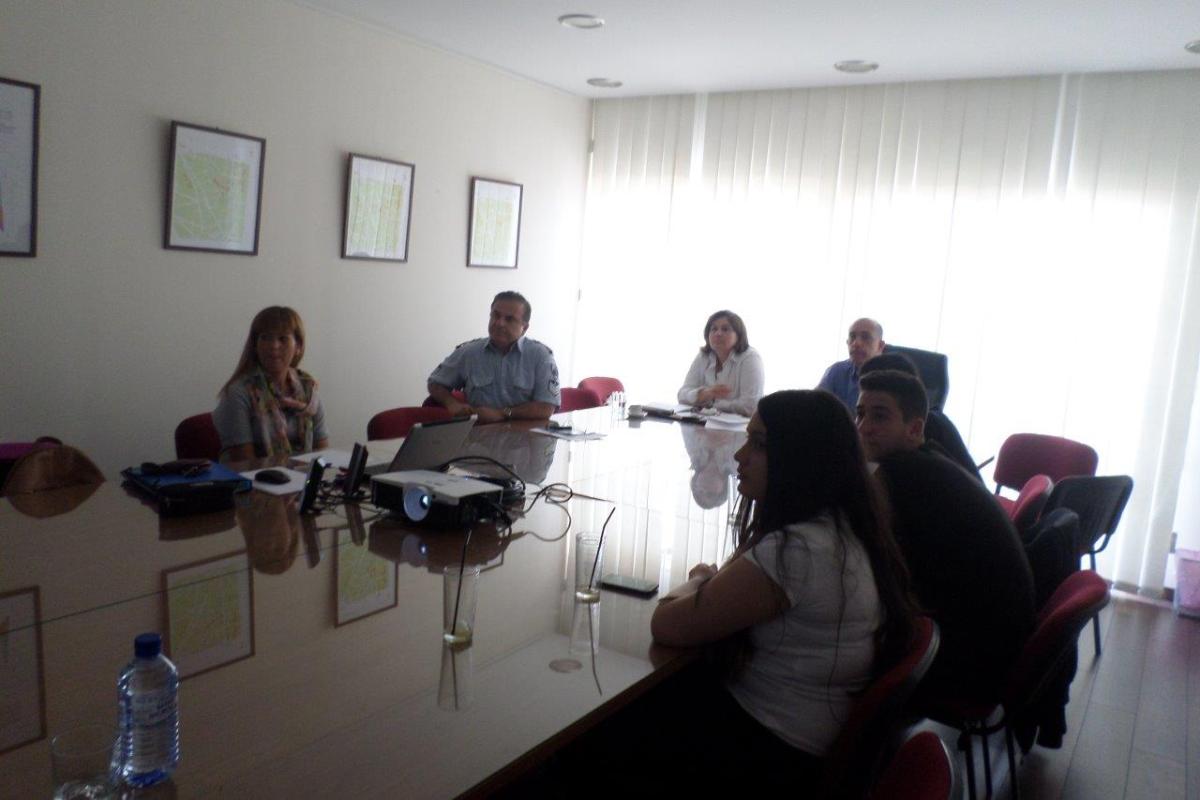Τ
According to The World Health Organization in the year of 2013, 186,300 pupils under eighteen die on the world’s roads almost every year and road accidents are amongst the top five causes of death for kids over five and the primary cause between the 15 – 17 year olds. Car passengers and pedestrians report roughly three quarters of road deaths amid the youngsters, while girls are twice less likely to die on the roads in comparison with the boys.
Road deceased rates are almost three times more in developing nations than in developed nations. The European Union is the safest sector universally, with a casualty rate of around fifty-one per million citizens in comparison with Africa that it is nearly five times higher and in the United States of America is about twice as high.
Pupils’ road safety in Cyprus became a big distressing story in recent years. Road deaths amongst kids have increased according to statistics that were conducted by the Traffic Department Police in Cyprus in the last few years (Police of Cyprus, 2015). On the other hand, pupils’ road safety in The European Union is a huge success story. Road deaths between youngsters were reduced by more than thirty present between any other era group in the last twenty years and under fifteens’ are nowadays by far the safest road user group in The European Union (European Commission, 2015).
The aim of this project was to organize different activities on road safety issues, to offer public awareness to pupils on road safety issues. Furthermore, the pupils need to improve their attitudes, knowledge and behaviour and, most significantly, in avoiding vehicle – pedestrian collisions as road users or pedestrians.
Last year, my school, took part in a project regarding Road Safety in Cyprus. We were chosen to take part in this program course. According to statistics by the ministry of Ministry of Justice and Public Order we are a school of high risk in traffic delinquency (Appendix A). The above program, called ΦΑΕΘΩΝ, was being run in 7 different schools around Cyprus with the collaboration of Ministry of Education, through the field of Home Economics.
Φαέθων Program
The program on road safety lasted 12 months (January 2015 – December 2015) and about 250 pupils took part. Road safety learning is a life-long development, but it must begin with the youngsters, tailoring its note to the pupils in order to teach secure traffic behaviours from primary to secondary school, so that protection becomes entrenched as part of the tradition and practice of our kids.
Training pupils to distinguish and understand auditory and visual clues is vital. Kids crashed by means of transportation most of the times argue that they do ‘look’ prior to crossing the road, but did not ‘notice’ the approaching vehicle that hit them. As these types of skills are developed, pupils become more conscious of applicable signs and appraise traffic situations more capably. Students are not yet aware of the thought of danger and must be taught to comprehend the risks inherent in the road society. A realistic experience is essential to enable road safety skills to develop.
The goals for Road Education require coaching students to be safer road users by developing:
- Familiarization and understanding of road traffic
- Behaviour skills essential to survive in traffic
- An understanding of their own responsibilities for keeping themselves safe
- Awareness of the cause and effects of road accidents
- A sensible attitude regarding their own safety and the safety of others
To comprehend the skills and strategies needed to be a safer passenger or pedestrian, the following skills must be established:
- Recognition of the presence of traffic
- Optical timing judgement
- Coordination of information from different directions
- Coordination of perception and action
- Cognitive ability to assess the traffic situation
- Methods of internalizing traffic negotiation
The students had four workshops in order to learn the theory behind road safety and two sessions outside school (on the road) to identify sensible and insensible attitudes regarding their own road safety and the road safety of others. Pupils should experience the world beyond the classroom as a vital part of personal and learning development, whatever their ability, circumstances or age.
After the theory they had to come up with ideas that could help their school/community to become a safer place for them and their families.
Different groups of students did the following activities:
- Had a meeting with the major of Larnaca, Mr. Andrea Louroutziate and discussed the issues concerning our school. They presented him with a short movie maker film pointing out the problems we are facing as a school,
- Had seminars given by The Police,
- The students created different road safety games,
- Did drawings, wrote poems and stories, kryptolexa, crosswords,
- Had workshop seminars by The Organization of Reaction,
- Participated in the program «Save kids Lives»,
- Did two small films and
- Wrote a song.
Teachers that contributed to the realization of the above program are:
DANIEL Petri (Home Economics – Health)
EVANGELLOU, Evangelos (Art)
OIKONOMIDES, Leonidas (Art)
ELIA, Angela (Music)
GIAGKOU, Chrystalla (Greek Literature)
GALANOU, Revekka (Home Economics – Health)
GEORGIOU, Christina (Home Economics – Health)
Deputies Coordinators of the programme:
MAURER, Stella (Deputy of Biology)
SOLOMONIDOU, Eugenia (Deputy of Music)
SAMARAS, Kuriakos (Deputy of Relogion)
Headmaster of Drosia High School in Larnaca, Cyprus
SAMARAS, Paraskevas
Topic
Images
